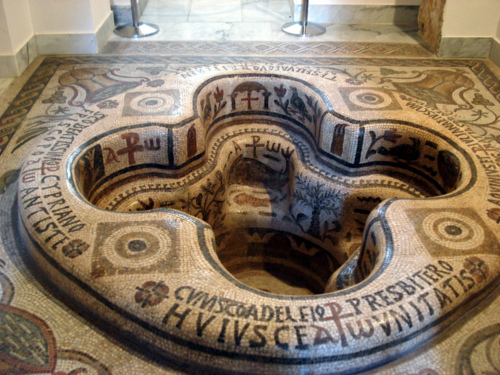Is 50:4-9a
Psalm 116:1-6, 8-9
Js 2:14-18
Mk 8:27-35
We have a tendency to remember Christ in our own image. Nowhere is this human tendency more evident than during election season. Christians on both sides of the political spectrum want to believe that Jesus is on their side supporting their causes. “Jesus would be against big government. After all, he didn’t come to establish an earthly kingdom,” we might hear from the right. The left would retort, “Jesus talks more about the poor than he does of hell. Surely Jesus would oppose the Ryan budget.”
In our gospel reading for this week, we see Peter doing this very same thing with Jesus. “Who do you say that I am?” Jesus asks his followers. Peter responds confidently, “You are the Messiah.” We think of Peter providing the right answer here. It is Peter who recognizes who Jesus is. So the dialogue that follows is sure to confuse us. Jesus explains that the Messiah is to be rejected, to suffer, and to die. Peter, so confident a few minutes before, is suddenly horrified. He pulls Jesus aside and rebukes him. And in a moment of abruptness, Jesus responds sharply, “Get behind me, Satan. You are thinking not as God does, but as human beings do.”
To understand this passage, we have to understand what a first century Jew would expect upon hearing the word “Messiah.” (Actually, there were several different strains of Messianic expectations in first century Judaism, including the hope for two Messiahs, one priestly and one kingly. In talking about Messianism, I am simplifying in order to make a point, but readers should know that the Jewish tradition does not speak in one voice on this matter). The word Messiah (Christos in Greek) simply means “anointed one” and is used in the Old Testament to refer to diverse figures such as Saul, David, and Cyrus, the Persian king who allowed the Jews to return from Exile. After the kingdom of Judah fell in 586 BC and the Jews were sent into exile, there was a longing for the restoration of the temple and the political triumph of the Jewish people. The person to fulfill this hope was the “Messiah,” a political figure, a king anointed by God. But the story of the Jews from the exile onward is the story of living under a foreign power, sometimes benevolent and sometimes hostile. By the time of Jesus, the Jewish Messianic longings were reaching a breaking point.
When Peter says “You are the Messiah,” we ought to hear the longing in his voice of centuries of Jewish waiting for political vindication. Peter expects the Messiah to be a king, to conquer the Jews’ foe (this time, Rome) and to re-establish the Jewish kingdom where Jews, and YHWH, would reign. The last thing in the world he would expect is the martyr messiah that Jesus turns out to be. The Jews knew of the suffering servant motif that we read in Isaiah this week, but the suffering servant was something different than the Messiah. So Peter is understandably confused at Jesus’ explanation of what is going to happen to him. “What about the kingdom?” Peter is probably wondering. “What about your people who are longing for a savior from political oppression? What about overthrowing the Romans?”
The Jesus in the gospel of Mark surprises us because he is the Messiah and the suffering servant. Not to mention that Jesus is more of a martyr than a king. And the gospel of Mark wants us to be surprised because it wants us to realize how we so often imitate Peter in our understanding of Jesus. We make Jesus conform to our expectations, rather than allowing Jesus to shape our expectations. We try and make Jesus follow us, rather than taking up our cross and following him.
In this election season, let us be ready to give up any claims for ourselves, any allegiances we have, outside of Christ. For many of us, being stripped of our political allegiances is “losing our life” indeed! I suspect that Jesus wouldn’t see much of himself in either the Republican or the Democratic party. When we allow a political party to shape our worldview, we are in danger of misunderstanding who Jesus is and what he wants us to do. And we risk receiving the rebuke Jesus gives to Peter, “Get behind me Satan!”




